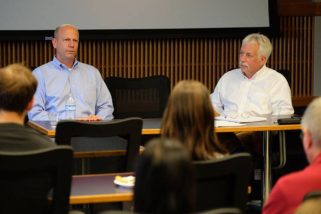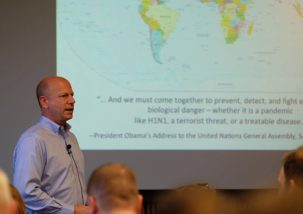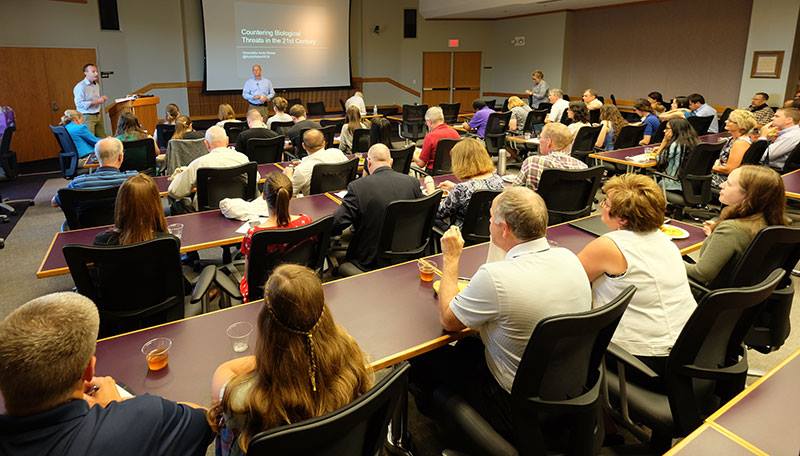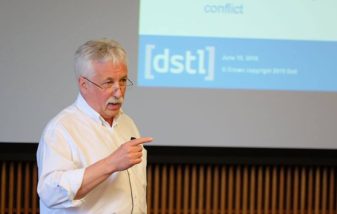“You never get credit for what doesn’t happen,” stated Andrew Weber, former Assistant Secretary of Defense and Deputy Coordinator for Ebola response at the US Department of State, when talking about the joint preventative efforts taken by the Health and Security departments.

Weber was one of two top global experts in biological threats and international security who visited the College of Veterinary Medicine at Kansas State University on Wednesday.
David Elliot, Lead in cooperative threat reduction at Defense Science and Technology Laboratories in the United Kingdom joined Weber on the panel.
Weber got his start in the field when working in Kazakhstan. He played a role in turning the world’s largest Anthrax weapons production facility in Kazakhstan into an open field of green grass. Since then, he has been passionate in reducing, or consolidating, the number of existing laboratories producing biological threats.
Weber encouraged the college of Veterinary Medicine to pursue a career in civil service. Previously, he worked with former Kansas Governor and Secretary of Health and Human Services Kathleen Sebelius in developing the Global Health and Security Agenda. The Agenda

emphasizes better communication between health and security sectors, improved implementation of preventative action, and international collaboration for human and animal disease control.
Elliot confirmed Weber’s call for multilateral and mutli-sectoral collaboration and communication. He underscored the link between animal health and living standards, stating “Some of the good that this sector can do; for example, increasing productivity, helping people manage more healthy livestock, all of that tends to raise living standards.” Elliot pointed out when living standards are raised, civil unrest decreases. Civil unrest and acts of terrorism are correlated.
Elliot also discussed the high value of collegiate research exchange programs. The London Royal Veterinary School and the Jordan University of Science and Technology work together in discovering best practices and educating the next generation of leaders in ethical concerns.
Elliot challenged students and attendees to gain international experience and discover organizations outside of their community that are integral solving issues within the global health and security sectors; such as OIE and UN FAO.
“There is a whole world out there that you can explore as well,” Elliot concluded.
Photos for this article are from Kansas State University College of Veterinary Medicine Facebook page.



